10 Characters In Famous Movies Who Secretly Broke Laws To Win
Characters in our favorite movies sometimes cross legal boundaries to attain their goals that we didn't realize. In the vast landscape of filmmaking, both heroes and villains have been guilty of covertly breaking laws, employing tactics such as deception, theft, manipulation, or a bold disregard for legal constraints.
From beloved Disney protagonists who find themselves on the wrong side of the law to enigmatic villains operating in the shadows, these characters challenge societal norms, prompting audiences to grapple with the complexity of morality. In movies, characters often break the law for good reasons or have complicated connections with legality, making stories more interesting.
Join us as we unravel tales where characters not only break laws behind closed curtains but also challenge the very fabric of morality, leaving indelible marks across diverse cinematic genres.
Advertisement
#1. Willy Wonka in Willy Wonka & the Chocolate Factory (1971)
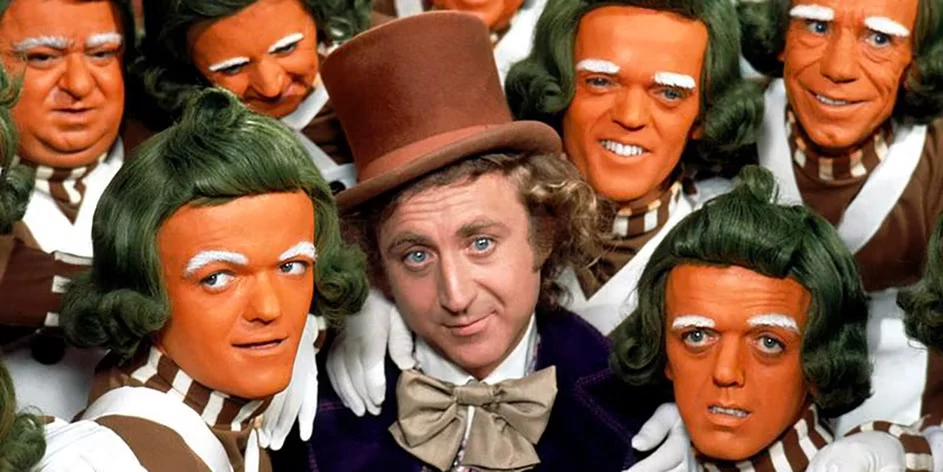 Source: IMDb
Source: IMDb
In Willy Wonka and the Chocolate Factory, there's no explicit evidence of Willy Wonka being involved in human trafficking. However, Wonka's employment practices can be seen as ethically questionable. The treatment of Oompa-Loompas, imported workers from Loompaland, raises concerns about fair labor practices.
The lack of consent and transparency in their relocation suggests potentially exploitative labor conditions. While not directly violating human trafficking laws, the story prompts contemplation on ethical business practices.
Additionally, operating from his secretive private factory, Wonka indirectly contributes to the demise of several children. Looking at it from a legal standpoint, Wonka serves as a symbol calling for broader ethical considerations within the chocolate industry.
Advertisement
#2. Ursula in The Little Mermaid (1989)
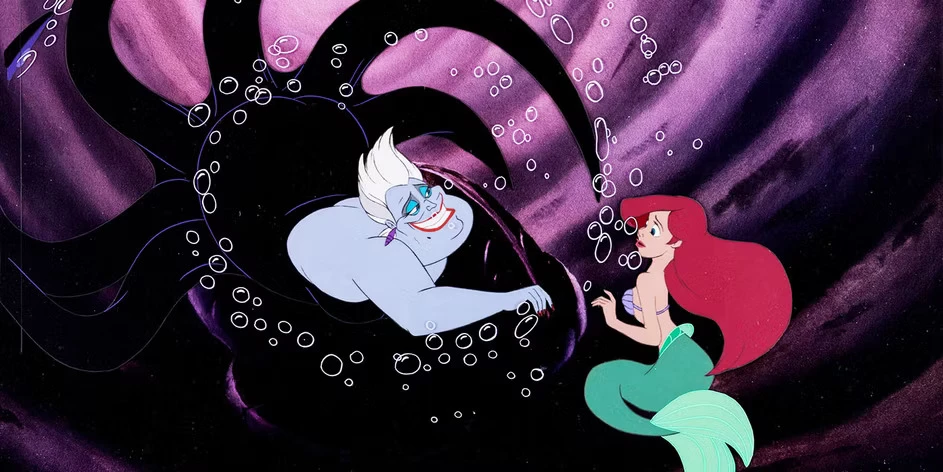 Source: IMDb
Source: IMDb
In The Little Mermaid, Ursula's contract with Ariel highlights some interesting aspects of contract law. The agreement lacks transparency, with Ursula taking advantage of Ariel's desperation. The terms are seemingly unfair, carrying severe consequences for default.
Ariel enters into the contract under duress and without a clear understanding of its implications, bringing up issues of informed consent. The contract also exploits Ariel's vulnerability, posing questions about ethical practices in contract law.
The film subtly suggests the importance of ethical contract negotiations and the need for parties to have equal bargaining power. Ursula's contract serves as a thought-provoking example, showing how legal agreements can be portrayed in movies to explore these themes without causing real harm.
Advertisement
#3. Edward Cullen in Twilight (2008)
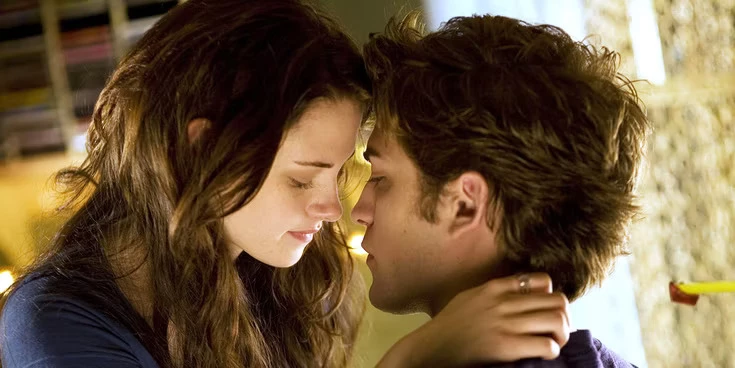 Source: IMDb
Source: IMDb
The Twilight saga sparks concerns about the age of consent laws through the relationship of Edward Cullen and Bella Swan. Edward, being a centuries-old vampire, contrasts sharply with the teenage Bella, who is just 17.
The substantial age difference and power dynamics in their relationship not only pose ethical dilemmas but also raise legal questions. While age of consent laws may not specifically cover supernatural beings, the unconventional nature of this relationship challenges societal norms, prompting reflection on the appropriateness of such dynamics.
Surprisingly, Edward seems to skirt legal consequences for dating a minor in the Twilight series, emphasizing the need for a closer examination of both legal and ethical boundaries in fictional relationships.
Advertisement
#4. Pete "Maverick" Mitchell in Top Gun (1986
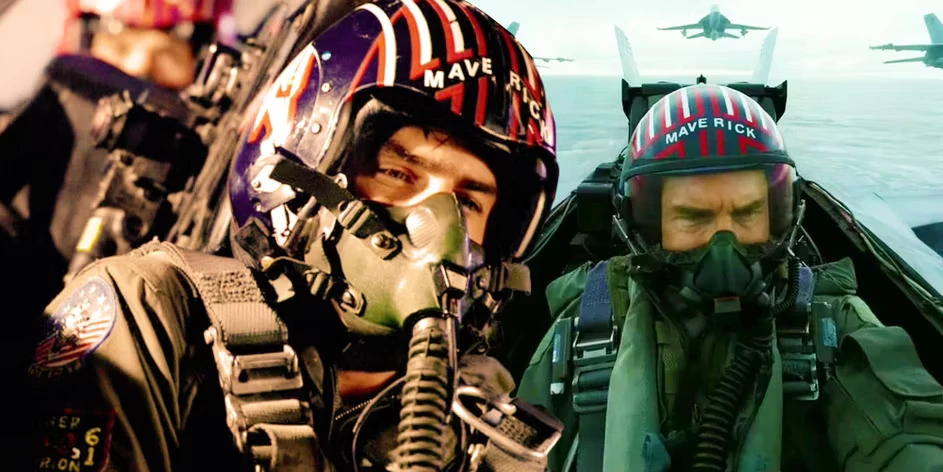 Source: IMDb
Source: IMDb
In Top Gun, Pete "Maverick" Mitchell showcases behavior that could be interpreted as a breach of military protocol. His penchant for disregarding orders and his competitive nature challenges the expected discipline within the military.
Interestingly, Maverick's reckless flying could theoretically be punishable by death. Furthermore, his romantic involvement with Charlie, a civilian contractor, potentially raises issues concerning fraternization policies. Maverick's reluctance to abandon his wingman in certain situations contradicts standard operating procedures.
Top Gun emphasizes Maverick's defiance of military rules, prioritizing drama and adrenaline. While the character's rebellious nature is central to the story, it's noteworthy that Maverick manages to evade the legal consequences that would typically result in life imprisonment or execution.
Advertisement
#5. Tony Stark in Iron Man (2008)
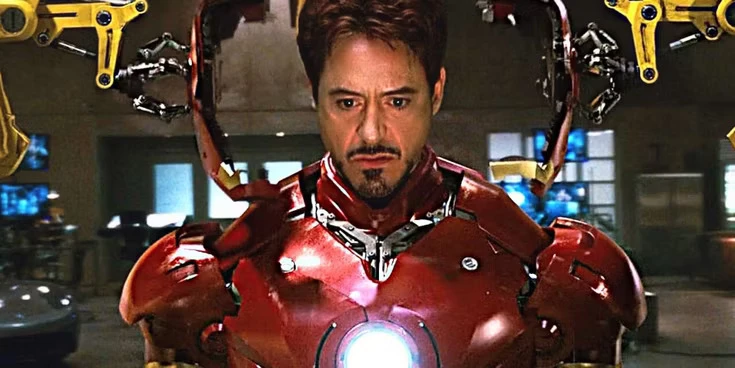 Source: IMDb
Source: IMDb
Beyond Iron Man's weaponry in the MCU, the suit itself breaches numerous regulations outlined by the Federal Aviation Administration (FAA). Soaring at high altitudes and speeds without proper authorization and identification raises concerns for airspace security.
The absence of a flight plan, communication with air traffic control, and adherence to established aviation rules goes against FAA protocols. Stark's impromptu and unregulated deployment of advanced technology and weaponry disrupts the safety and order upheld by aviation regulations designed to safeguard civilians.
While the film highlights Stark's genius and heroism, it inadvertently underscores the potential hazards of unbridled technological advancements in aviation.
Advertisement
#6. Doc Brown in Back To The Future (1985)
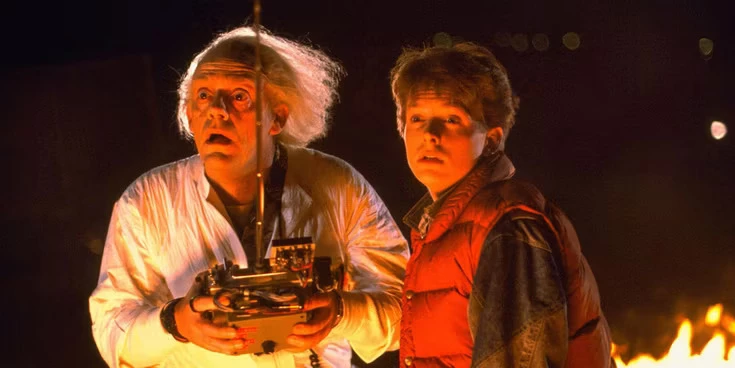 Source: IMDb
Source: IMDb
While the DeLorean time machine in Back to the Future is a cherished sci-fi element, Doc Brown's procurement of nuclear materials for the device introduces legal uncertainties.
Doc's retrieval of plutonium from terrorists implies a disregard for established laws governing highly regulated nuclear materials, posing substantial risks.
Additionally, Doc's engagement of Marty McFly, a 17-year-old, in a perilous and unpaid role as his lab assistant constitutes a violation of child labor laws. Despite the urgency of time travel experimentation, Doc's actions involve covert breaches of the law to achieve his objectives.
Advertisement
#7. The Jedi in Star Wars: The Clone Wars (2008
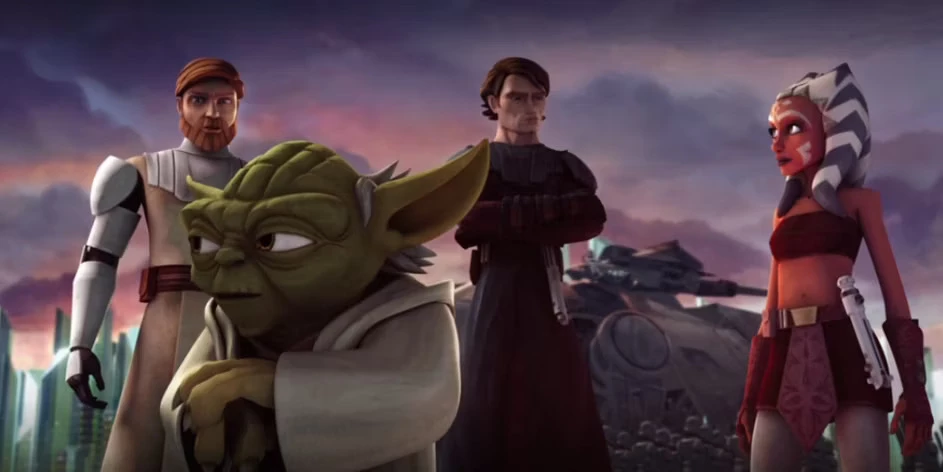 Source: IMDb
Source: IMDb
In Star Wars: The Clone Wars, the Jedi's use of fake surrender tactics, as seen when Obi-Wan employs this strategy to aid Anakin, raises ethical questions. Feigning surrender, considered a breach of honorable conduct in warfare by the Geneva Convention, may erode trust between opposing forces with broader consequences.
The film introduces moral dilemmas associated with deceptive strategies, but the Jedi heroes escape any repercussions.
Advertisement
#8. Lewis in Revenge of the Nerds (1984)
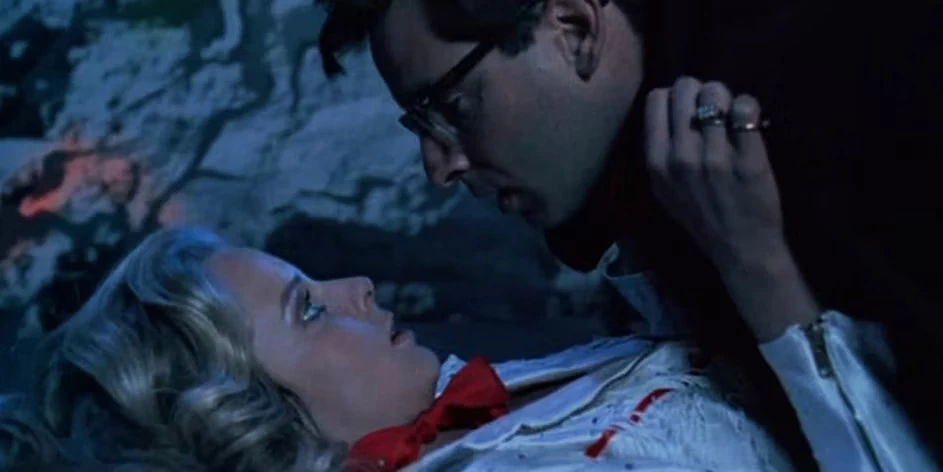 Source: IMDb
Source: IMDb
The actions of the main characters in Revenge of the Nerds, particularly Lewis, spark concerns regarding sexual consent. The scene where Lewis disguises himself as Stan to engage in a sexual encounter with Betty involves deceptive tactics.
Betty is under the impression that she's with her boyfriend, Stan, unaware of the switch. This portrayal undermines the significance of informed and genuine consent. While the film was created in a different era, the scene is now acknowledged as problematic.
The narrative fails to address the gravity of the situation, revealing a lack of understanding about consent in its historical context. This underscores the necessity for ongoing discussions about portraying respectful relationships in media.
Advertisement
#9. The Timberwolves in Air Bud (1997)
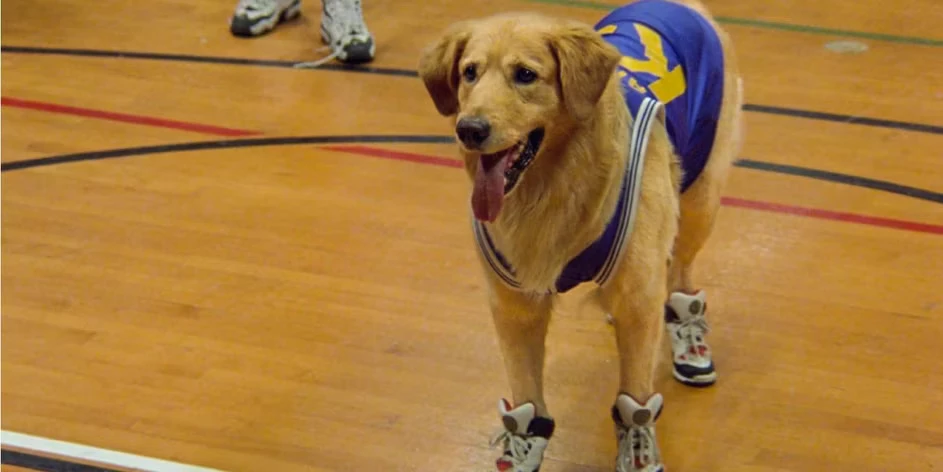 Source: IMDb
Source: IMDb
While there is no law explicitly prohibiting dogs from playing in official basketball games, the Timberwolves in Air Bud potentially breach animal cruelty laws. Subjecting the Golden Retriever Buddy to the hazards of human-team sports raises ethical concerns.
Involving animals in high-intensity physical activities without ensuring their well-being and consent is ethically questionable. Although the film aims for Entertainment, the depiction of Buddy engaging in competitive sports might inadvertently convey the wrong message about the proper treatment of animals.
While the Timberwolves may have emerged victorious in the final game, it raises questions about the legality and ethics of putting their beloved mascot in real danger.
Advertisement
#10. Bruce Wayne in Batman Begins (2005)
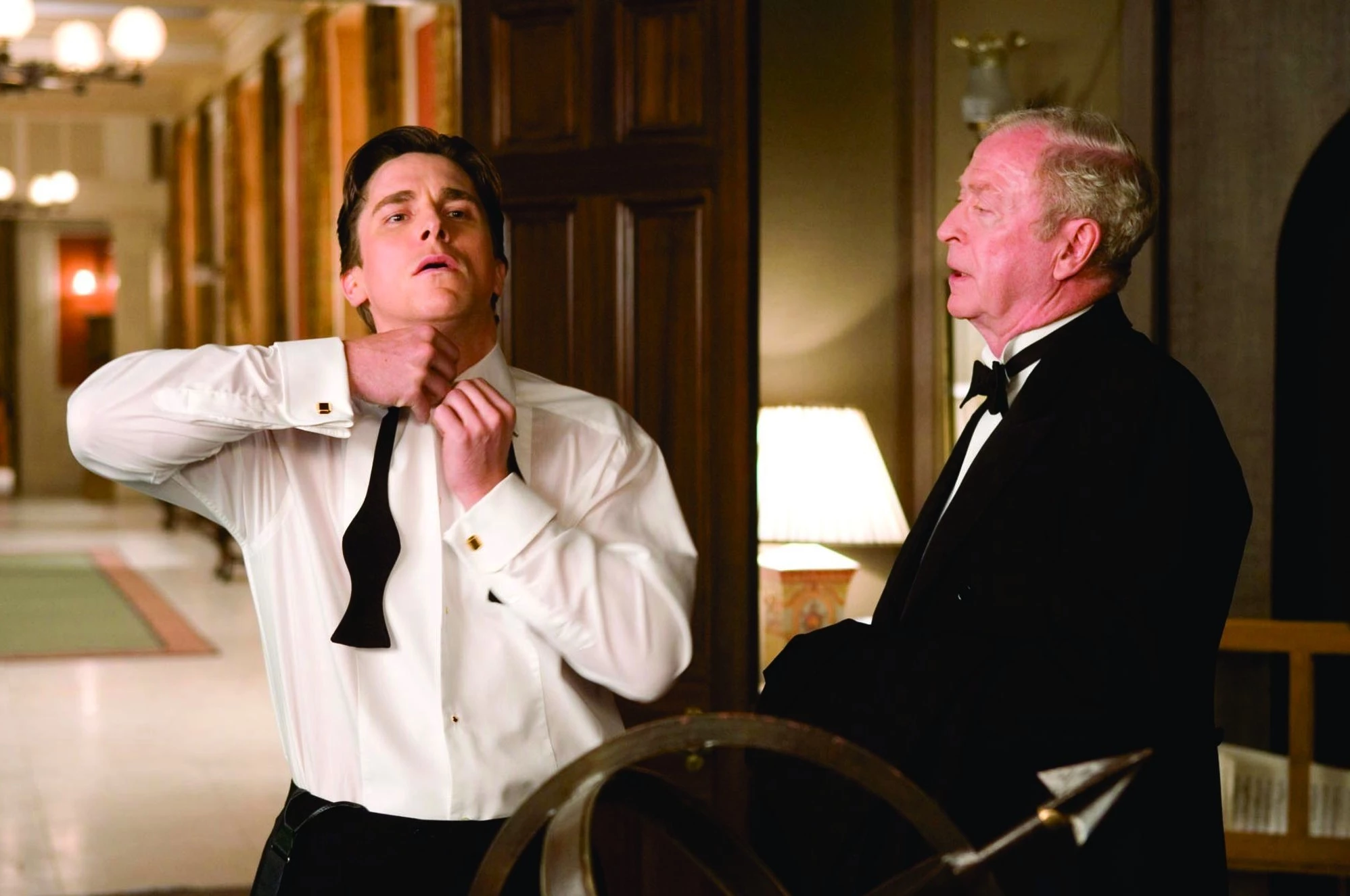 Source: IMDb
Source: IMDb
Batman Begins presents the best cinematic rendition of Bruce Wayne's transformation into the Dark Knight for several reasons. However, the film introduces ethical and legal concerns as Bruce utilizes Wayne Enterprises' resources and funds for personal, unauthorized purposes, including the development of the Batmobile and the Batcave.
This aligns with the definition of embezzlement, involving the misuse of entrusted funds for personal gain. While the movie primarily delves into Bruce's evolution into Batman, it indirectly suggests his bending or breaking of corporate laws to achieve his vigilante goals.
This portrayal encourages viewers to contemplate the moral implications of such actions, even when undertaken in the pursuit of justice.
Related Articles
Share this article
Advertisement